Thousands of people hold massive protest in Portugal’s capital over cost-of-living crisis
Thousands of people have taken to the streets in the Portuguese capital city of Lisbon to demand better living conditions amid the country’s high inflation, which has made it tougher for people to make ends meet.
The Saturday protest in Lisbon was organized by the Fair Life movement.
Vitor David, a 26-year-old programmer, said he would like to move back to Lisbon one day, but had to live further out because of how expensive it is to rent a house in the city.
"It comes to a point in our lives that we have no hope," he said, adding that he had already pondered moving to a wealthier European country, because life in Portugal is “very hard."
According to official data, around 20 percent of Portuguese live abroad.
"We are here so our voice is heard," said Jose Reis, who recently graduated from university, but is still unemployed.
The Fair Life movement was created by people who live in Lisbon's poorer outskirts. The movement organizers say those who were already the most vulnerable before inflation started to rise are also being those hardest hit by the ongoing cost-of-living crisis.
Protesters want higher wages, a cap on the prices of essential goods, and government action on housing.
Last week, Portugal announced a package of measures to tackle the housing crisis. However, rights groups said the proposals would mean little if authorities continued to promote other policies to attract wealthy foreigners to the country, such as the Digital Nomads Visa introduced in October.
Portugal is one of Western Europe's poorest countries. Official data show more than 50 percent of Portuguese workers earned less than 1,000 euros ($1,054.60) per month last year, while the monthly minimum wage is 760 euros.
Housing prices in Portugal increased by 18.7 percent in 2022, registering the biggest rise in three decades. Rents have also increased significantly in part due to a speculative property bubble.
Low wages and high rents make Lisbon the world's third-least viable city to live in, while the country’s 8.3 percent inflation rate has exacerbated the problem.
During past weeks, tens of thousands of Portuguese teachers have been regularly staging massive protests in Lisbon, as the country’s Socialist government faces a wave of discontent over the cost-of-living crisis.
Socialist Prime Minister Antonio Costa is facing a slump in popularity and street protests not just by teachers, but by other professionals only a year after he won a majority in parliament.
The country’s biggest umbrella union, the CGTP, has also held several nationwide protests and strikes against rising prices, urging the government to increase workers' pay.
Gen. Soleimani, architect of the Axis of Resistance, reshaped regional power, deterrence
VIDEO | Protest against US aggression on Venezuela held in Rome
VIDEO | London protesters condemn US aggression against Venezuela
VIDEO | Press TV's news headlines
VIDEO | Against erasure: Palestinians say survival in Gaza affirms their right to land
BBC bars use of ‘kidnapping’ to describe Maduro’s kidnapping
VIDEO | International cartoon, poster contest 'Online Terror' unveiled in Tehran
VIDEO | Venezuela installs interim president after US kidnapping of Maduro


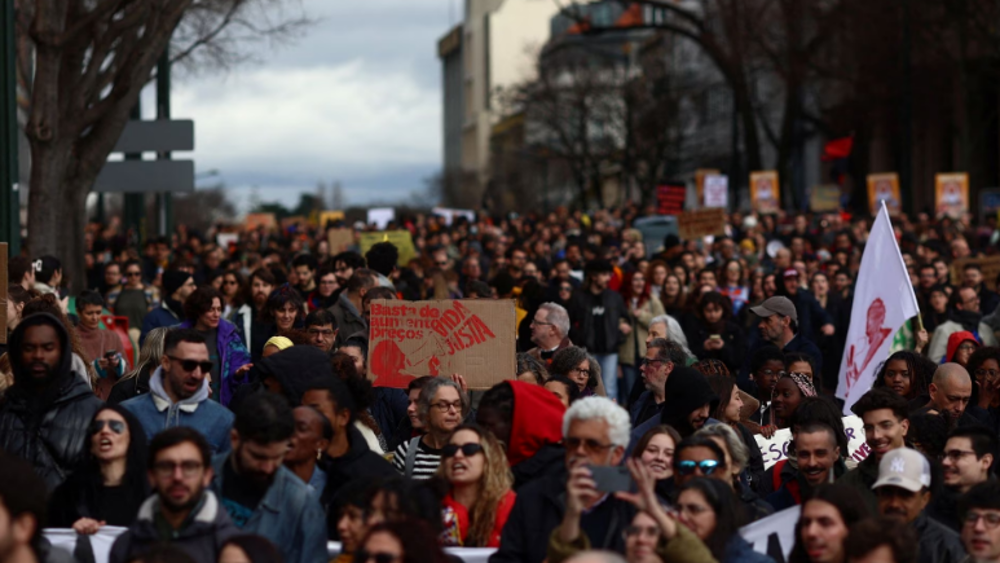
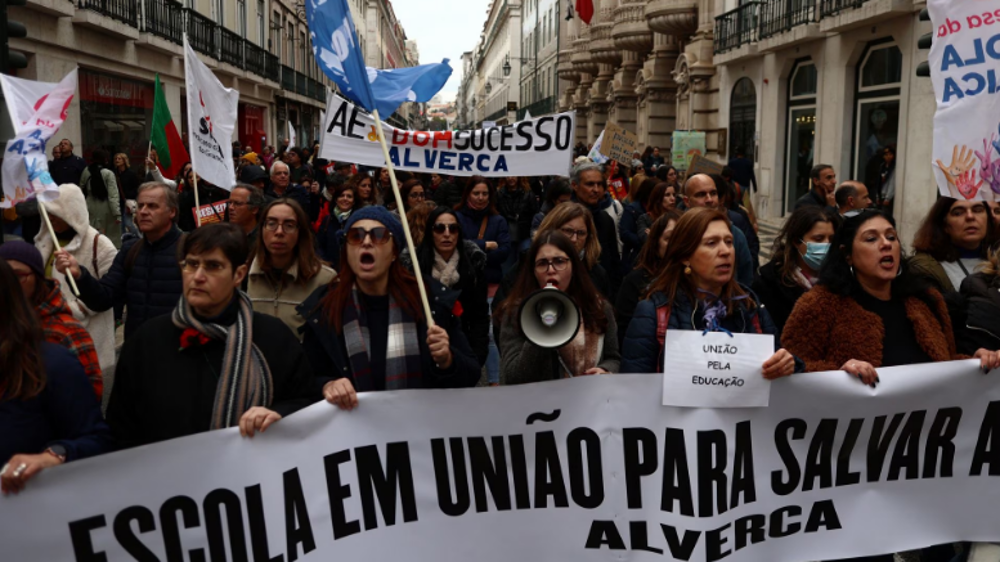
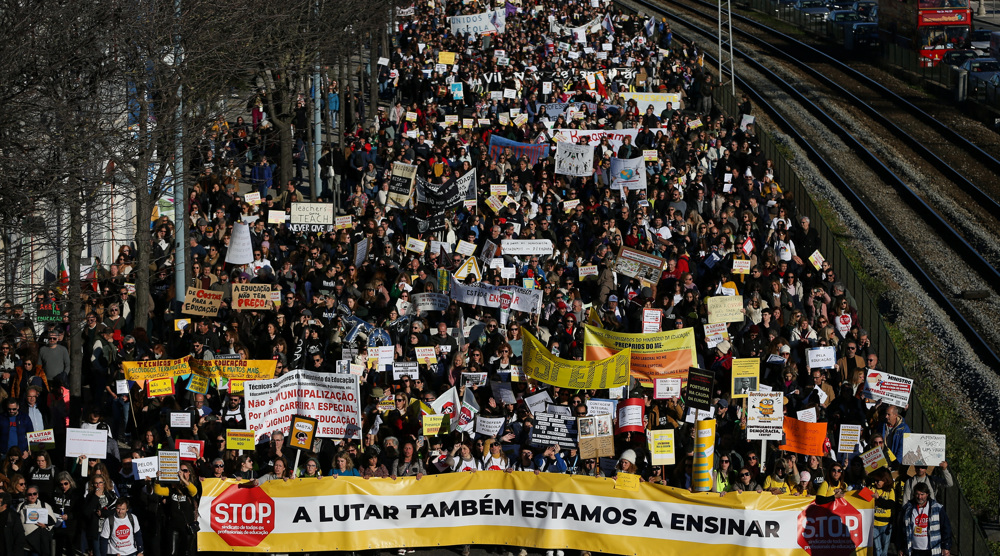
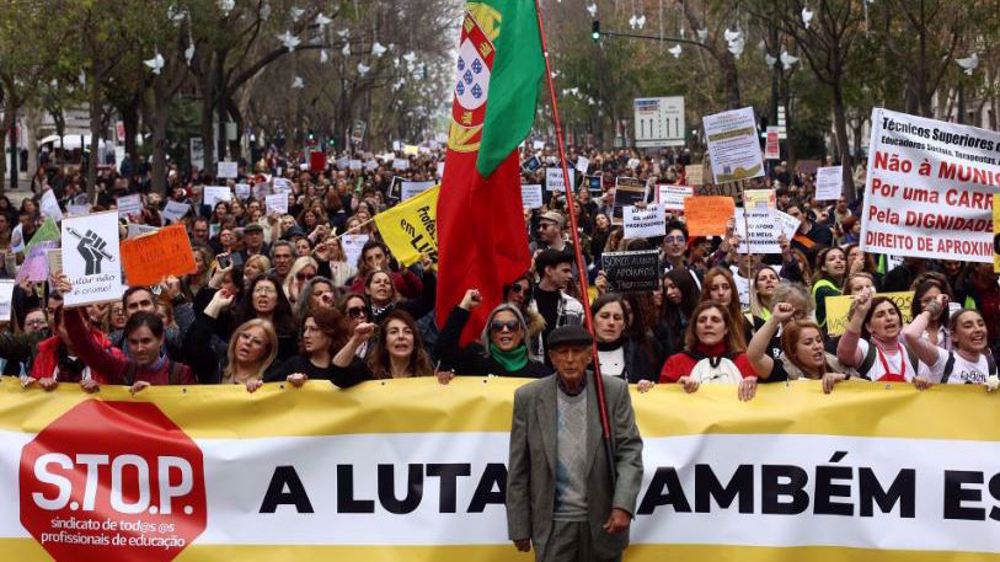
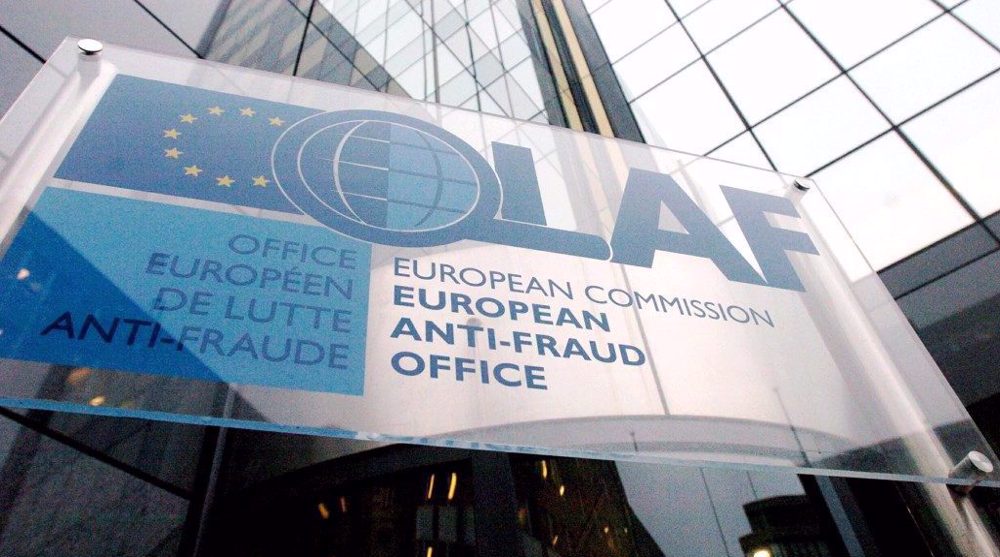






 This makes it easy to access the Press TV website
This makes it easy to access the Press TV website